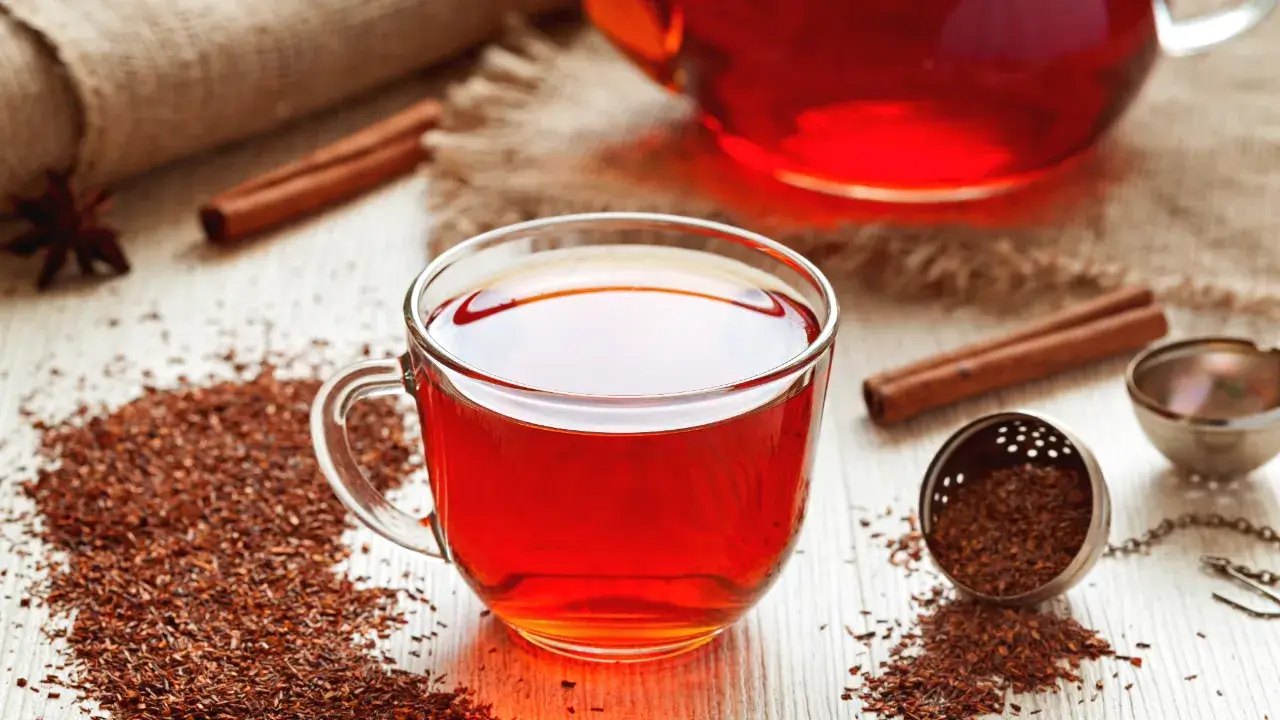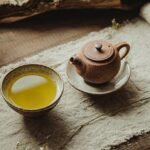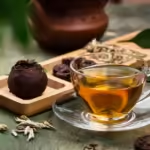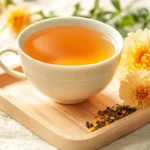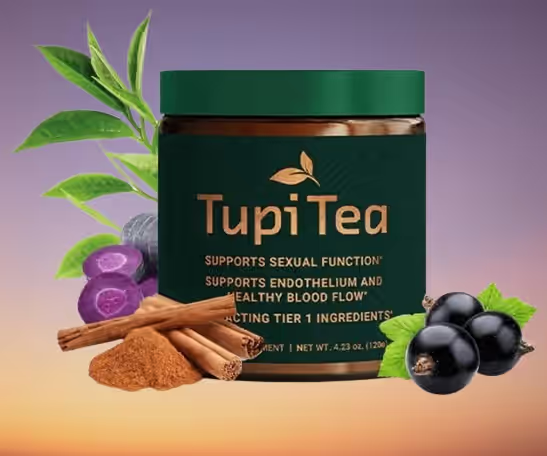Table of Contents
If you’re looking to source South African herbal tea, you’ll discover a variety of options that cater to different tastes and preferences. South Africa is a treasure trove of unique herbal teas. These teas are not only delicious but also packed with health benefits.
One of the most popular is rooibos tea. Known for its rich, earthy flavor and vibrant red color, it’s a staple in many South African homes.
But rooibos isn’t the only herbal tea this region has to offer. Honeybush tea, with its sweet, honey-like flavor, is another local favorite.
These teas are more than just a tasty beverage. They’re a part of South African culture, steeped in tradition and history.
In this article, we’ll explore the benefits of South African herbal teas. We’ll also guide you on how to source these teas, ensuring you get the best quality brew.
If you are interested in tea or wish to learn about African herbal remedies, we invite you to discover South African herbal teas with us.
The Rich Heritage of South African Herbal Teas
The history of South African herbal teas is deeply intertwined with the culture and traditions of the region. These teas have been used for centuries not just as beverages, but for their medicinal properties in African communities.
Each type of tea tells a story, reflecting the environment and the people who have cherished it. From wild landscapes to local ceremonies, these teas have been a constant presence in daily life. The cultural significance adds a layer of authenticity and mystique to the experience of drinking South African herbal tea.
Rooibos Tea: A South African Herb Treasure

Rooibos tea, also known as red bush tea, stands out as a remarkable South African herbal tea. Its unique characteristics and numerous benefits make it a favorite among tea lovers. This tea is valued for its rich, earthy flavor and vibrant red hue.
Native to the Cederberg region, rooibos tea holds a special place in South Africa’s natural heritage. The plant thrives in the dry and mountainous areas, drawing nutrients from the rugged terrain. It is both rare and cherished globally for its refreshing taste and health properties.
A key appeal of rooibos is its versatility. It can be enjoyed hot or cold, sweetened or plain. Here are some popular ways to enjoy it:
- As a soothing evening drink
- Mixed in lattes for a unique twist
- Infused in desserts for added flavor
Growing international interest in rooibos tea has boosted its demand worldwide. This has prompted ethical sourcing and sustainable farming practices. With each cup, drinkers experience not just a beverage, but a piece of South African heritage and culture.
Health Benefits of Rooibos Tea Products
Rooibos tea is naturally caffeine-free, making it an excellent choice for any time of day. This benefit appeals particularly to those seeking a calm and relaxing drink.
Packed with antioxidants, rooibos helps combat oxidative stress in the body. These antioxidants include unique compounds like aspalathin and nothofagin, which may aid in reducing inflammation.
Many believe rooibos supports heart health by improving cholesterol levels. It may also help to stabilize blood sugar, making it beneficial for glucose management.
How Rooibos Tea is Sourced
The sourcing of rooibos tea is a meticulous process, reflecting its high quality and unique taste. The tea is harvested from the mountainous regions of South Africa, where the rooibos plant naturally grows.
After harvesting, the leaves undergo fermentation. This process brings out the iconic red color and enhances the flavor profile of the tea. Post-fermentation, the leaves are dried under the African sun, locking in their robust taste.
To ensure sustainability, ethical practices in sourcing rooibos are prioritized. This not only supports local communities but also protects the environment, ensuring this South African treasure is enjoyed by future generations.
Honeybush Tea: The Sweet Alternative Options
Honeybush tea offers a naturally sweet flavor profile that distinguishes it from other herbal teas. Originating from the southern coast of South Africa, it is cherished for its smooth and honey-like taste.
This herbal tea complements a variety of palates thanks to its mild and pleasant flavor. It can be savored both hot and cold, providing a comforting and enjoyable experience.
Popular uses for honeybush tea include:
- A morning energizer without caffeine
- A refreshing iced tea in summer
- A sweet base for herbal blends
The increasing appeal of honeybush tea is attributed to its taste, versatility, and health benefits. Its growing reputation continues to attract tea enthusiasts worldwide.
Health Benefits of Honeybush Tea
Honeybush tea is rich in antioxidants, which play a pivotal role in enhancing overall health. These compounds help neutralize free radicals in the body, potentially aiding in the prevention of various diseases.
Another notable benefit is its potential to support respiratory health. Traditionally, it has been used to alleviate coughs and promote clear breathing.
Additionally, honeybush tea may offer anti-inflammatory effects, which can contribute to reduced inflammation in the body. Its soothing properties make it an excellent choice for those seeking natural relief.
Sourcing Honeybush Tea Sustainably
The sustainable sourcing of honeybush tea reflects an emphasis on environmental responsibility. Grown in pristine, natural habitats in South Africa, the cultivation respects local biodiversity.
Farmers often utilize organic farming practices to preserve the delicate balance of the ecosystem. This approach not only protects the environment but also ensures a high-quality product.
Supporting fair trade practices is crucial in the honeybush tea industry. This allows local communities to benefit economically, promoting sustainable growth and development. As demand increases, these ethical practices become vital in maintaining the integrity of sourcing.
Other Notable South African Herbal Remedies

Beyond rooibos and honeybush, South Africa offers a rich tapestry of herbal remedies with intriguing benefits. These natural treasures include buchu leaves, traditionally used to support kidney health and digestion.
Another important remedy is the African potato, known for its immune-boosting properties. These lesser-known herbs continue to captivate those exploring traditional African medicine and its long-standing health practices.
Brewing the Perfect Cup of South African Herbal Tea
Creating a delightful cup of South African herbal tea is a simple yet rewarding process. The right brewing method can elevate the flavors and benefits of the tea.
Here’s how to brew your tea perfectly:
- Use fresh, filtered water for the best taste.
- Steep the tea for 5-7 minutes.
- Adjust the steeping time to your taste preference.
Enjoy your tea hot or let it cool for an iced version. With these steps, you can savor the full essence of South African herbal blends.
Where to Source South African Herbal Tea
Finding high-quality South African herbal tea is easier than ever. With a rise in global popularity, many retailers now offer these unique teas.
Online stores provide a vast selection of South African teas. Consumers can choose from specialized tea vendors or larger marketplaces. This makes acquiring these teas from anywhere in the world convenient.
For those who prefer in-person shopping, many specialty stores and health shops stock South African herbal teas. Here’s a list of common sources:
- Online tea retailers
- Health food stores
- Specialty tea shops
Ensuring the tea is ethically sourced supports local communities and promotes sustainability. Always check for certifications when purchasing.
Conclusion: Embracing the Culture and Health of South African Teas
South African herbal teas offer rich flavors and numerous health benefits. Their connection to culture and tradition adds to their appeal.
By incorporating these teas into daily routines, we celebrate both health and heritage. This harmonious blend promotes wellness and supports sustainable practices worldwide.
